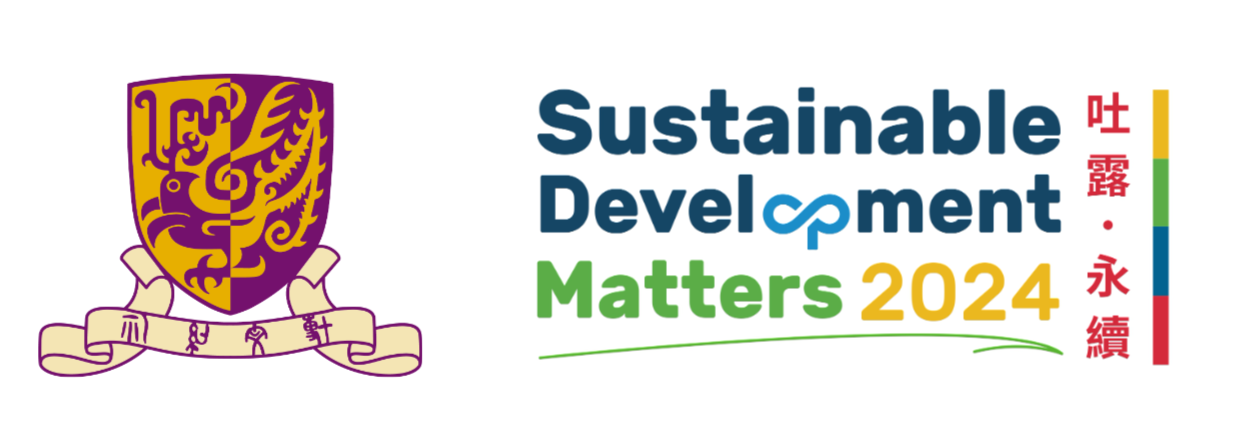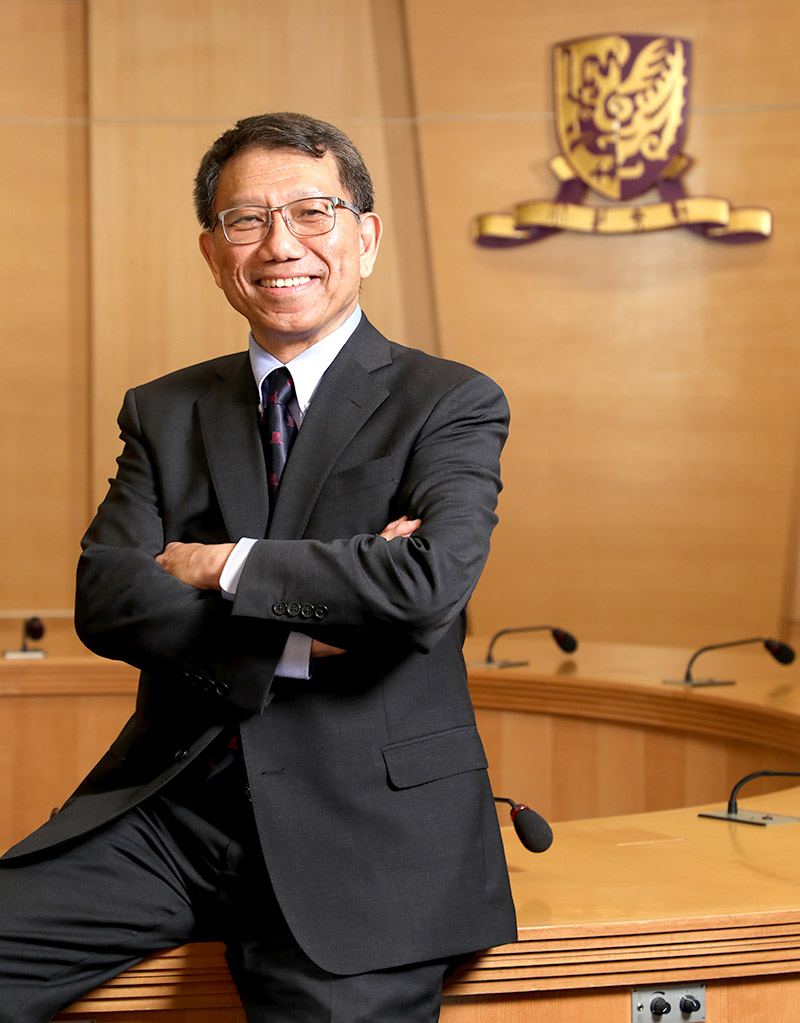Building Business for the Greater Good
The Hong Kong Social Enterprise Challenge
Reported by
M. Mak, Information Services Office
Share this story
As the adage goes, ‘it is easier to start a business than to sustain it.’ It seems like an impossible mission for youths, fresh from school, to reach their entrepreneurial dreams and contribute to society simultaneously. But young people are unafraid to take risks and willing to try. Driven by pure guts and with the proper guidance, they may possibly make it. Since 2007, CUHK Center for Entrepreneurship has been holding the yearly Hong Kong Social Enterprise Challenge (HKSEC), sponsored by the Home Affairs Bureau, to teach, facilitate, support and encourage young people to chase their dreams. Over the ensuing decade, more than 7,300 students from 45 tertiary institutions around the world have taken part in the contest. Many social enterprises have sprung up as a result, benefiting different community groups.
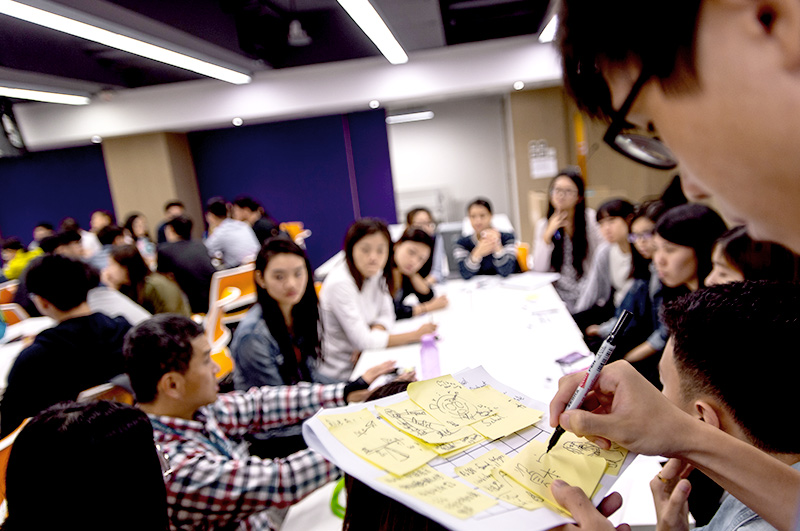
Under the theme of Sustainable Development Goals, this year’s HKSEC provides SDGs-related training to participants
Explaining the ‘people-centred’ approach emphasized in design thinking, HKSEC project director Prof. Elsie Tsui said: ‘Young people may aspire to serve a certain group but have vague ideas about their actual needs. Design thinking requires our contestants to put themselves into the shoes of their target customers, in order to conceptualize the right products and services.’ Participants also learn how to consider things from a business angle, such as ascertaining market needs and integrating the beneficiaries with the target market for a social enterprise to stay viable.
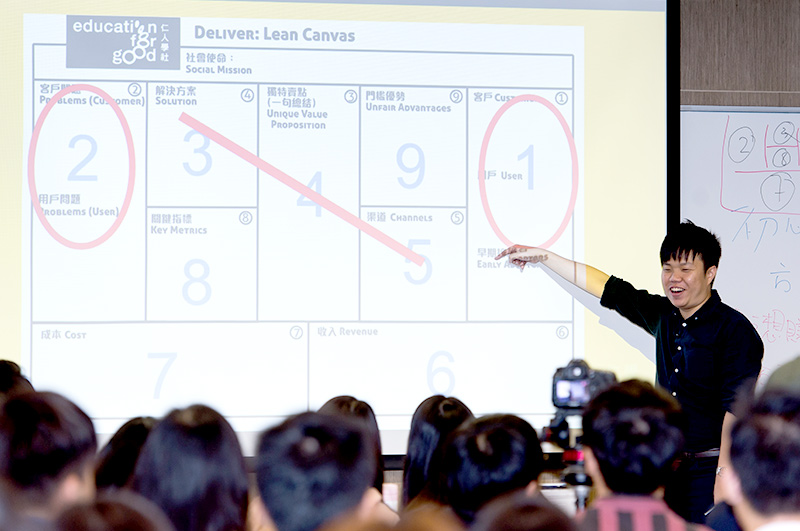
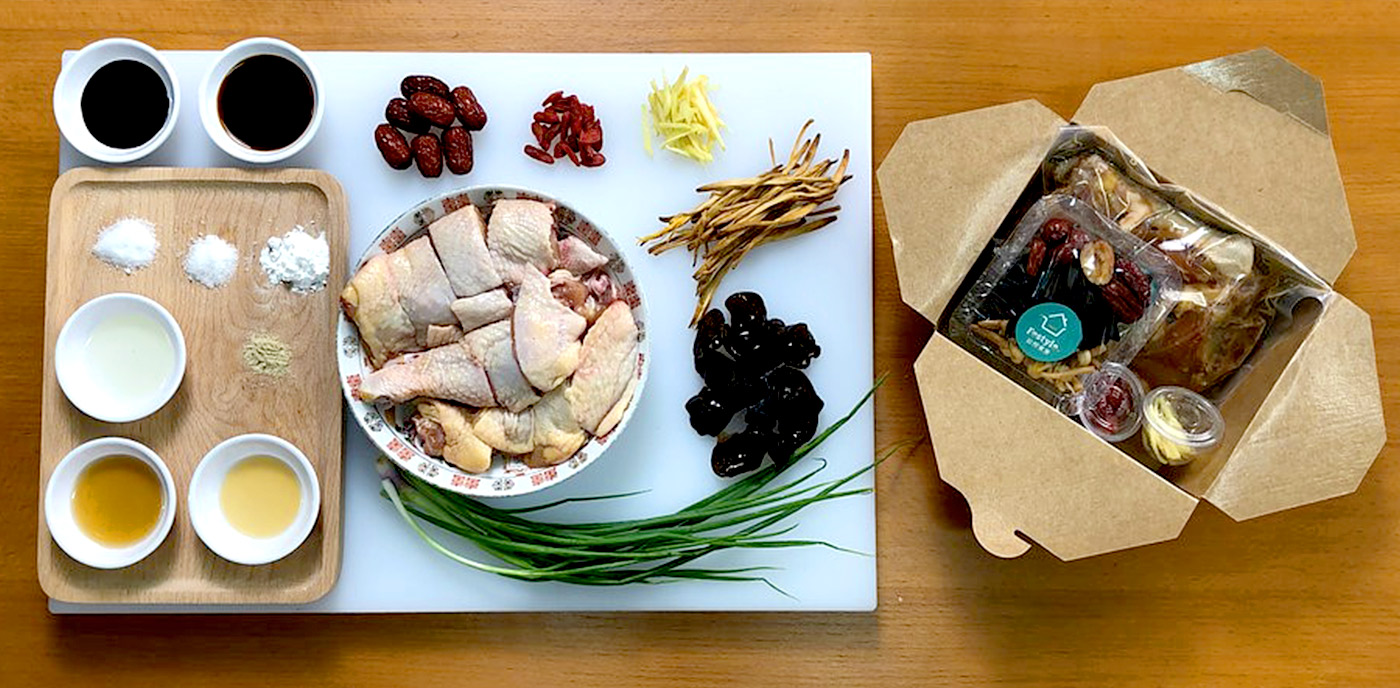
‘Festyle’ empowers housewives by hiring them to prepare boxes of healthy food ingredients (Source: Festyle website)
CUHK sociology graduate Ruby Yip won the HKSEC championship in 2015 for integrating the target audience’s ‘pain points’ with potential market needs. She felt that many housewives are superb cooks but they lack a platform to showcase their talents. In contrast, working people are so busy with their jobs that they have no time to shop for grocery and cook. That was why Ruby founded ‘Festyle’, where housewives are hired to develop recipes, prepare healthy food ingredients and deliver boxes of them to those who want to cook homemade meals readily after work. ‘Festyle’ has created employment opportunities for many female immigrants, while allowing them to take care of their families, do what they are good at and be socially integrated.
During the competition phase, contestant teams must apply the business skills they have learned to design core products and services, company trademarks and packaging, and build a social enterprise model. At the finals, the competing teams will be judged by a panel of professionals from different sectors. The winning team will be granted a startup award of up to HK$300,000. The Center for Entrepreneurship will assign a mentor to provide the team with guidance and assistance through the phases.
While everybody is making a beeline to join the finance and technology industries, social enterprises are silently mushrooming across the globe. Prof. Muhammad Yunus of Bangladesh has founded the Village Bank, helping tens of millions of poor people so far and for which he was awarded the 2006 Nobel Peace Prize. HKSEC contestants share a similar enthusiasm to serve society. For example, the social enterprise ALCHEMIST has converted soft drink cans into timepieces and other accessories to win the ‘Red Dot Design Award’ in Germany. Eldpathy, the HKSEC champion team in 2012, held elderly-themed experiential events to promote public understanding of the elderly’s restriction in body movement and prompt employers to modify their workflow and workplace design to accommodate the needs of aged staff.

Confucius said in The Analects: ‘Now the man of perfect virtue, wishing to be established himself, seeks also to establish others.’ In this light, the blind pursuit of profit seems short-sighted and out of step with the times. Compared to companies motivated only by profit, social enterprises are founded to help others and resolve the problems of larger society. If these establishments are well-run and able to turn in a profit, they will become guiding lights of the business world.

Share this story
UP NEXT
Sowing the Seeds of Sustainability
I am delighted to introduce you to the inaugural issue of CUHK Sustainability, a new publication seeking to encapsulate, in thoughtful and engaging features, the efforts and achievements of the CUHK community in driving sustainability over the past year…
